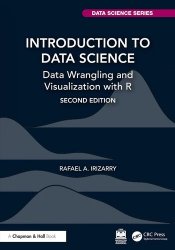 Название: Vectorization: A Practical Guide to Efficient Implementations of Machine Learning Algorithms
Название: Vectorization: A Practical Guide to Efficient Implementations of Machine Learning AlgorithmsАвтор: Edward DongBo Cui
Издательство: Wiley-IEEE Press
Год: 2025
Страниц: 445
Язык: английский
Формат: pdf (true)
Размер: 10.1 MB
Enables readers to develop foundational and advanced vectorization skills for scalable Data Science and Machine Learning and address real-world problems. Offering insights across various domains such as Computer Vision and natural language processing (NLP), Vectorization covers the fundamental topics of vectorization including array and tensor operations, data wrangling, and batch processing. This book illustrates how the principles discussed lead to successful outcomes in Machine Learning projects, serving as concrete examples for the theories explained, with each chapter including practical case studies and code implementations using NumPy, TensorFlow, and PyTorch. From the essentials of vectorization to the subtleties of advanced data structures, Vectorization is an ideal one-stop resource for both beginners and experienced practitioners, including researchers, data scientists, statisticians, and other professionals in industry, who seek academic success and career advancement.
























